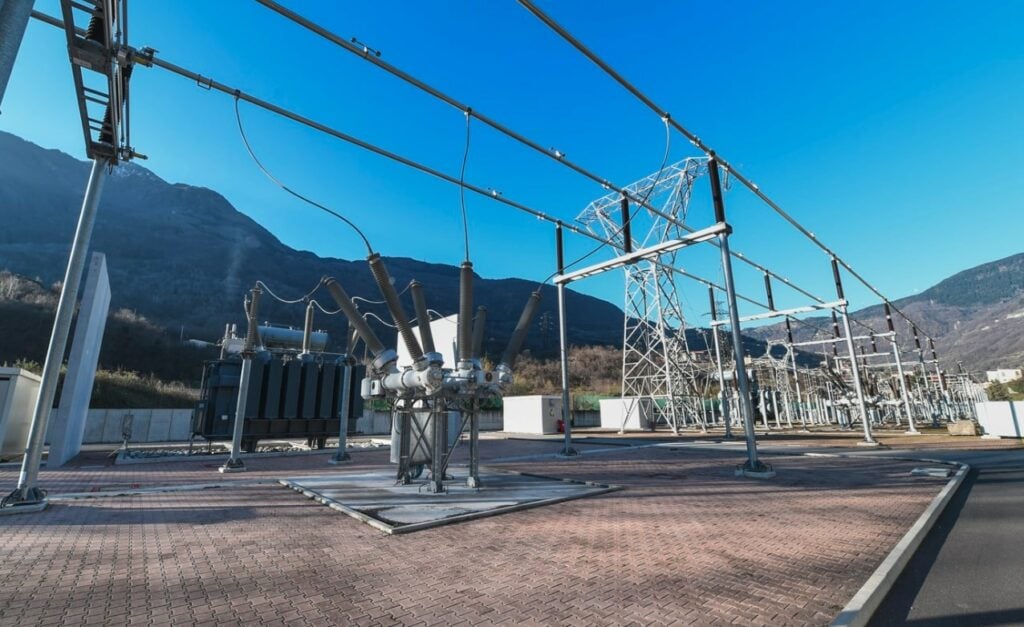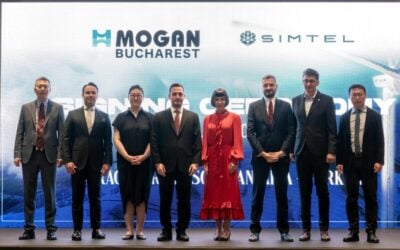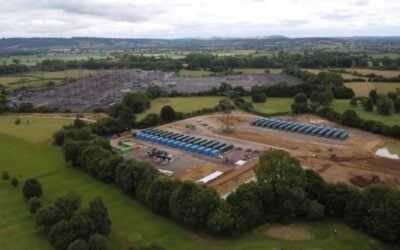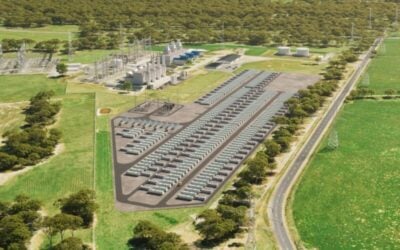
Recently-formed developer Innovo Group is targeting a 1.5GW/9GWh lithium-ion BESS development portfolio in Italy and UK, with the first system in central Italy online in Q1 2024.
CEO Rodolfo Bigolin announced the start of development of the 72MW/432MWh BESS in central Italy via Twitter last week (9 November), saying the system would provide fundamental support for the deployment of renewable energy in Italy.
Enjoy 12 months of exclusive analysis
- Regular insight and analysis of the industry’s biggest developments
- In-depth interviews with the industry’s leading figures
- Annual digital subscription to the PV Tech Power journal
- Discounts on Solar Media’s portfolio of events, in-person and virtual
Bigolin told Energy-Storage.news the project should come online in quarter one, 2024. He added that the firm expects to bring three more projects totalling 150MW/900MWh through grid studies (STMD) application by the end of this year and a further 500MW/3,000MWh by end-2023. STMD stands for Soluzione Tecnica Minima di Dettaglio (Minimum Detail Technical Solution).
The firm plans to have a 1.5GW/9GWh – six-hour duration – portfolio of BESS under development in all geographies including the UK by quarter one of next year.
“Innovo is working with leading EPCs, Operators and Technical advisors in the Italian and Global markets to explore critical issues today and define a future market roadmap as accurately as possible,” he said.
Discussing the announced Italian project, Innovo’s engineering director Stefano Girolami said: “Our 72MW project is located in Abruzzo, an area that we expect to be strategic from a nodal and grid overloading point of view, with solid renewable generation in the Southern Adriatic areas and dispatch to the northern Italian regions. For this reason, battery storage in these areas will facilitate grid balancing.”
“As explained above, we opted for a medium size, given the presence of medium-sized grid substations of strategic importance.”
The company has chosen to move to a six-hour duration for its projects because the battery storage market is becoming increasingly energy-intensive rather than power-intensive, Girolami added, alluding to the move in most developed markets to energy trading rather than just providing frequency response services.
Despite the longer duration, the company considers lithium-ion the most viable chemistry on the market for the projects, with Girolami citing modularity, high-efficiency and high-density as the things that make it most attractive.
“If and when, new solutions will be available at competitive cost and large-scale availability, we will definitely consider them. Improvements can and need to be made in terms of degradation levels and sustainability related to lithium-ion technologies,” he added.
He added that the falling cost of implementing battery storage projects will make it possible to build business models on subsidy-free, pure ‘merchant’ revenue streams, as opposed to stacking grid services with auctions and day-ahead markets. Grid operator Terna is requesting discharge durations of up to eight hours in auctions covering the next three to five years.
Girolami said the higher duration also allowed the firm to maximise its footprint and future-proof the system.
“We also tend to maximise energy to maximise the footprint, giving us more flexibility in the permitting phase and future management of the system (energy increases, battery replacement etc., to keep the efficiency of the BESS as high as possible throughout its lifecycle).”
“The battery storage market is developing fast, and future connection volumes of renewable energy (intermittent) to the Italian RTN (national transmission grid) will make this service indispensable.”
Italy has around a gigwatt of BESS installed – 1,200MWh by Q1 2022 according to national renewables association, ANIE Rinnovabili, and around 900MW by end-2022 according to research firm Delta-EE.
The vast majority of that is residential/distributed energy resources (DERs), largely thanks to the ‘superbonus’ incentive for homeowners, but the country is set to rapidly increase its utility-scale deployments over the coming years. Delta-EE is forecasting around 800MW of front-of-meter deployments in both 2023 and 2024.
Durations appear to have moved far beyond one or two hours, which still prevails in the UK market, Europe’s biggest.
Battery storage assets are increasingly winning in Italy’s capacity market auctions and renewable energy deployments are starting to pick up year-on-year, as reported by our sister site PV Tech, which will increase intermittency and therefore arbitrage opportunities for BESS projects.
Discharge durations of four-hours as seen in huge recent projects from Ingeteam and Nidec Group, and now six hour ones from Innovo, should come as no surprise.
Bigolin announced the formation of Innovo Group earlier this year as a consolidation of various renewable energy ventures launched in the UK and Italy.
Energy-Storage.news’ publisher Solar Media will host the eighth annual Energy Storage Summit EU in London, 22-23 February 2023. This year it is moving to a larger venue, bringing together Europe’s leading investors, policymakers, developers, utilities, energy buyers and service providers all in one place. Visit the official site for more info.






